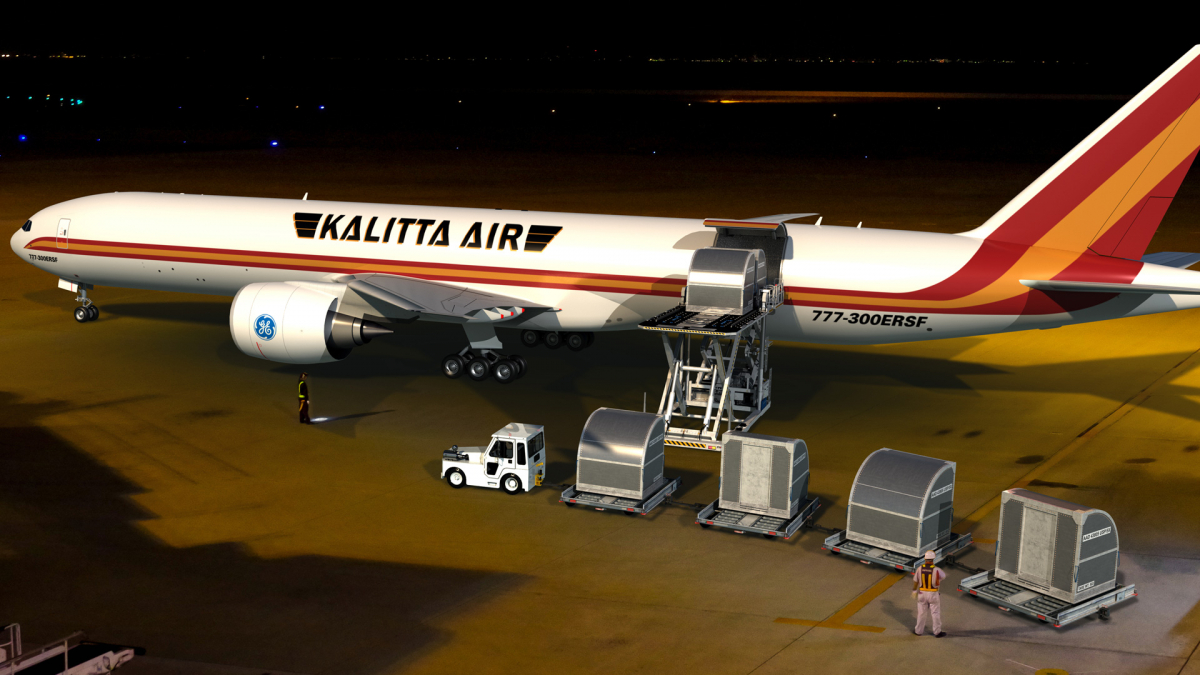A cargo version of the A350 XWB was initially planned in Airbus' development projects in 2006. The manufacturer has decided to take it out of the box in the face of the Boeing 777 Freighter and especially the future 777-300ERSF being pushed by Gecas Cargo and the Israeli IAI.
A cargo version of the A350XWB from 2006
Since the beginning of the A350XWB program, launched at the 2006 Farnborough Airshow, Airbus has been working on a freighter version of the A350-900, including a regional version and an extended range version. (See Air & Cosmos' files on the A350 program). The cargo version of the A350-900 was intended to compete with the Boeing 777 Freighter, which had just been launched and had a transport capacity of 100/102 tonnes over 9,000 km. In the absence of sufficient interest from the market at the time, Airbus decided to push the A330-200 Freight, targeting the 767 Freight, with relative commercial success. However, the European manufacturer never intended to leave Boeing without competition in the freighter market, whether for new or converted aircraft.
Finding the right window of opportunity for Airbus
The challenge is to find the right window of opportunity. The crisis created by the SARS pandemic clearly demonstrated, even if the SARS episode in 2003 was a precursor, that the health factor does not affect the exchange of goods between countries, and therefore the transport of cargo by air. A sure sign is that global cargo traffic has just returned to its 2019 volume levels. This is an opportunity for Airbus to really invest in the cargo aircraft segment. The only long-haul aircraft that continued to sell, along with tankers, during 2020. Re-launching a cargo version of the A350-900 can therefore be considered a serious option, especially since this version would attack the Boeing 777 Freighter at an angle, with a lower payload (in tonnage or volume) but a range that is at least equivalent, if not greater. With the advantage of offering very attractive operating costs compared to a 777 Freighter that is starting to age.
Towards a second life for the Boeing 777-300ER
The urgency for Airbus to act is heightened by the fact that Boeing has not finished expanding its footprint in the cargo market, with new and/or converted aircraft. In addition to its 767F/777F/747-400F/747-8F range, the American manufacturer also occupies the market for the conversion of passenger aircraft into freighters: 767-300 BCF, 747-400 BCF and now the 737-800 BCF and 777-300ERSF. Clearly, Boeing is in the process of locking up the market for good, and it will be increasingly difficult to dislodge it. Driven by GE Cargo and the Israeli company IAI, the 777-300ERSF, whose first aircraft is currently being converted in the IAI workshops in Tel Aviv, is aimed at replacing the MD-11 Freighter and the 747-400 Freighter and 747-400 BCF on the basis of more than 800 Boeing 777-300ERs to be converted in the coming years. Kalitta Air is the first operator to commit, but others will follow in the coming months.
Découvrez cet article sur Air&Cosmos

